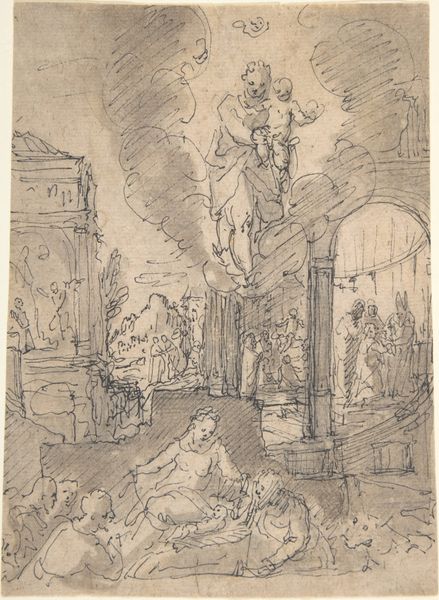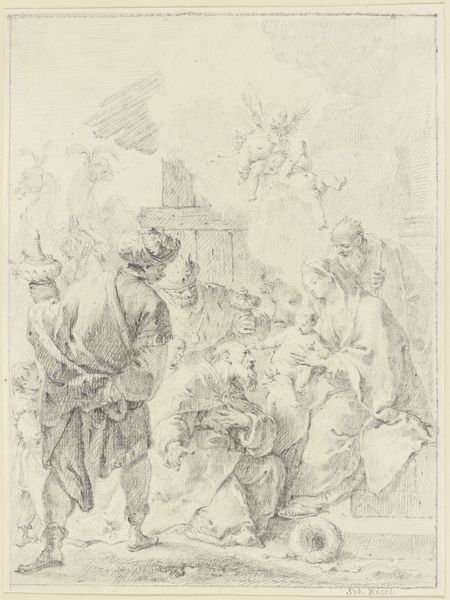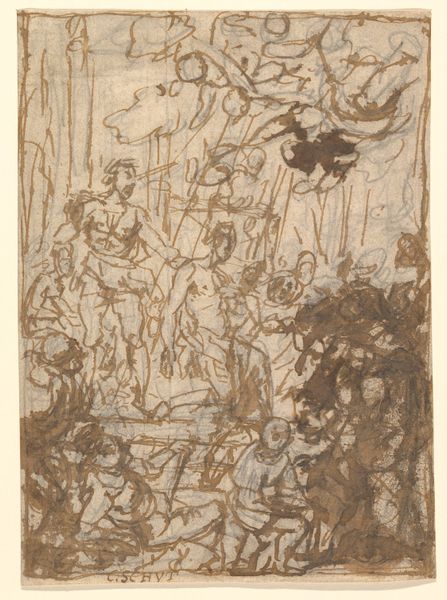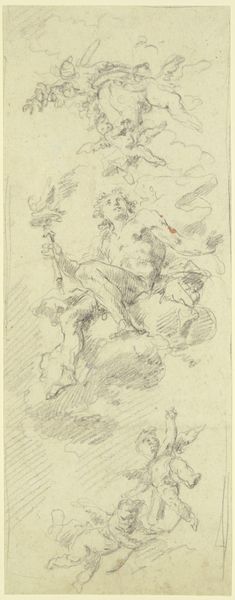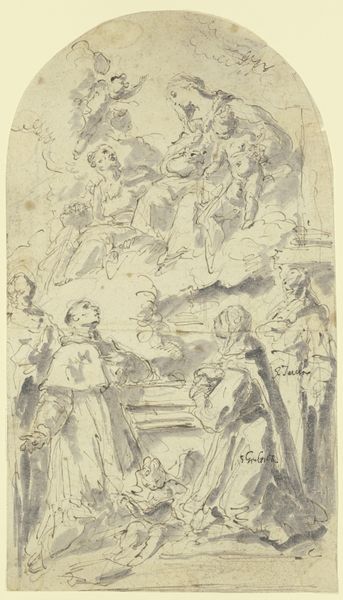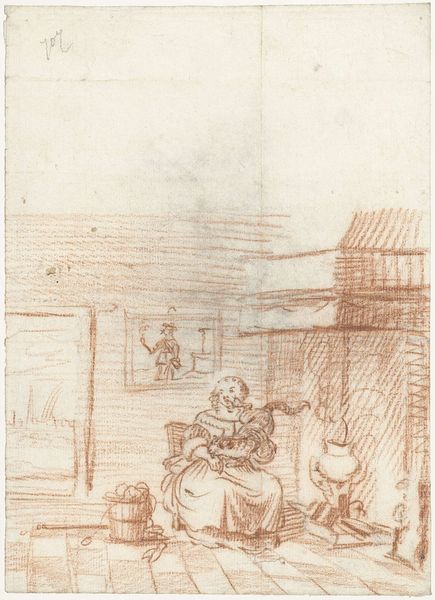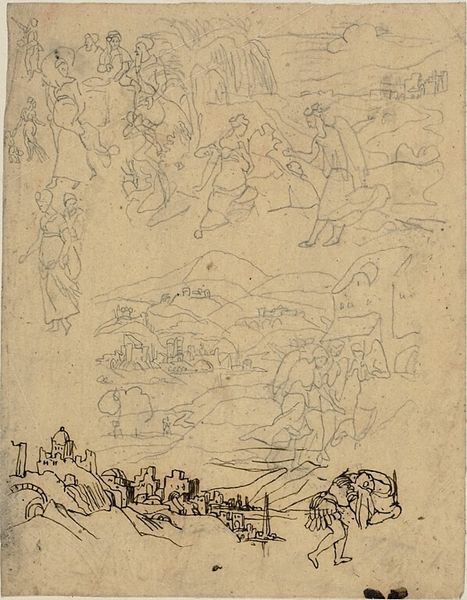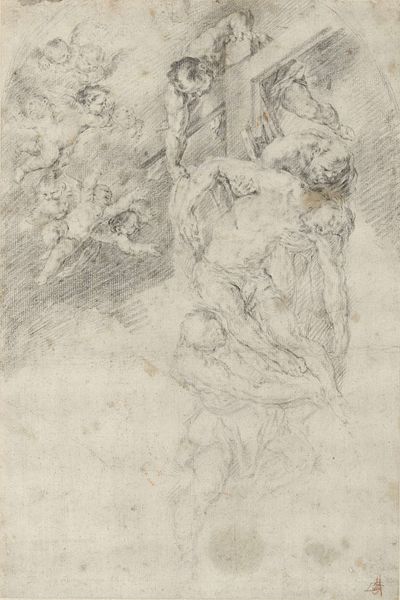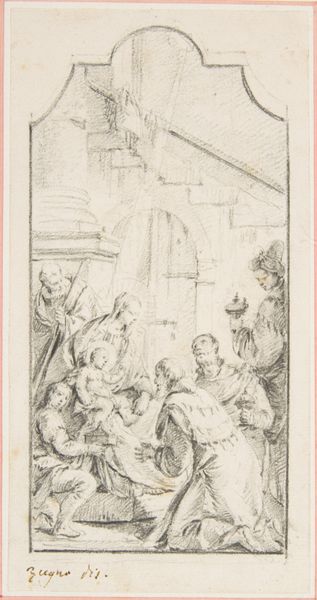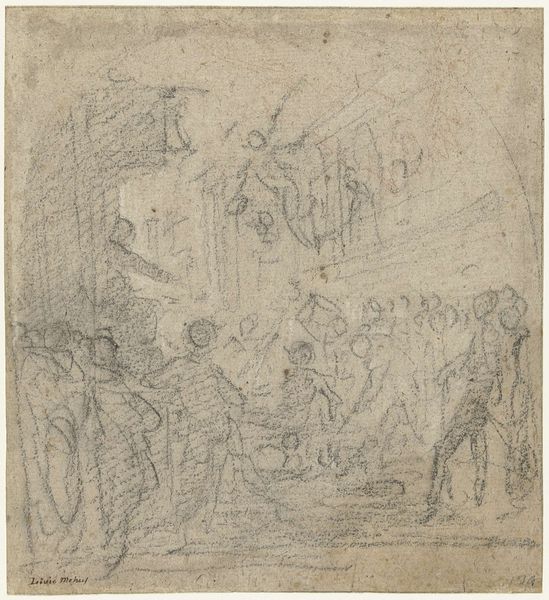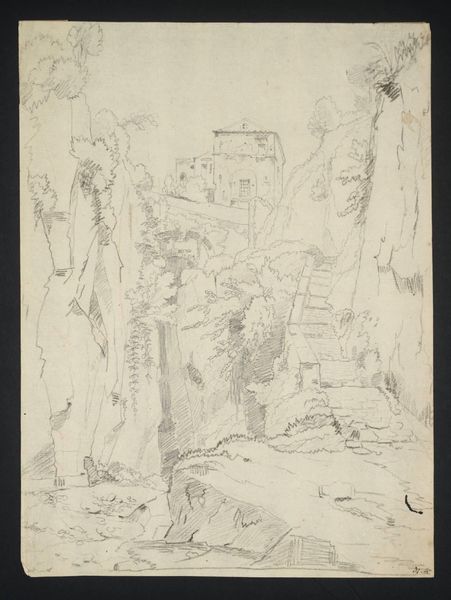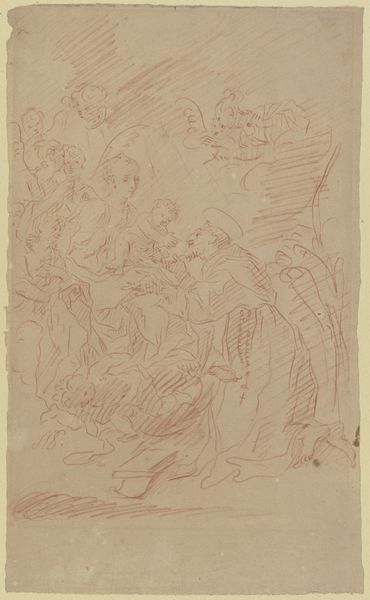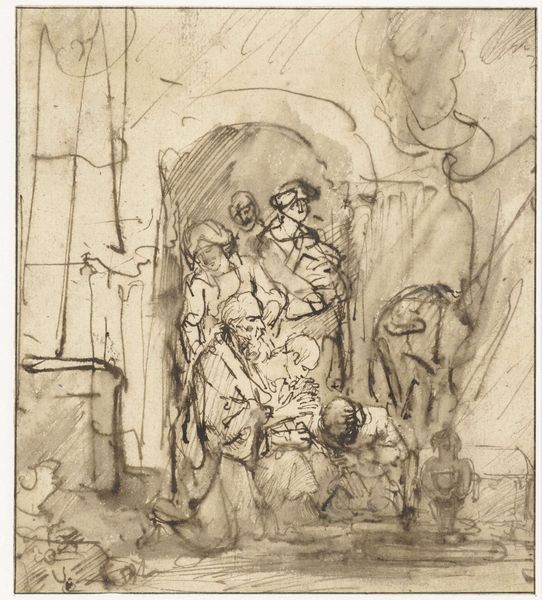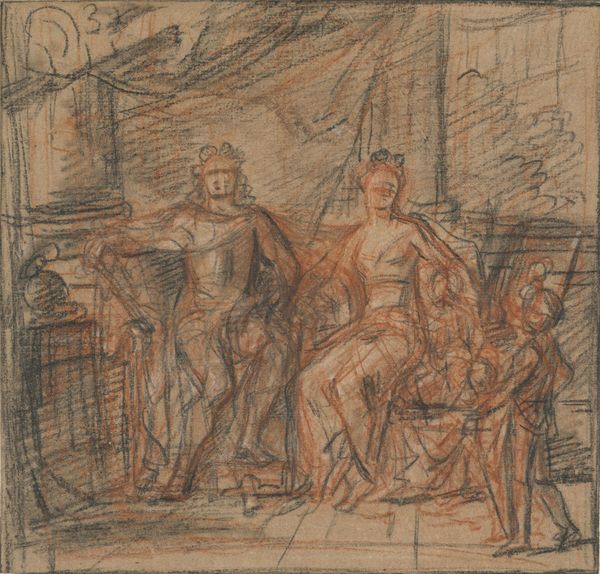
Klassicistisch tafereel, waarbij een op de grond zittende man geholpen wordt c. 1722 - 1784
0:00
0:00
simonfokke
Rijksmuseum
drawing, pencil
#
drawing
#
neoclacissism
#
pen sketch
#
landscape
#
figuration
#
pencil
#
history-painting
Dimensions: height 79 mm, width 57 mm
Copyright: Rijks Museum: Open Domain
Editor: Here we have a pencil and pen drawing entitled 'Klassicistisch tafereel, waarbij een op de grond zittende man geholpen wordt’ – that’s 'Classical Scene, Where a Man Seated on the Ground is Helped’ – by Simon Fokke, dating from somewhere between 1722 and 1784. The whole scene feels a little… theatrical to me, posed almost. What's your interpretation? Curator: Indeed. Consider the socio-political climate of the late 18th century, steeped in Enlightenment ideals. Neoclassicism wasn't just an aesthetic choice, but a deliberate referencing of Roman virtues - civic duty, heroism, reason. Notice the architectural elements and drapery. It speaks to the institutional power structures aligning themselves with these idealized histories. How do you think a piece like this might function within, say, an aristocratic collection of that era? Editor: It might serve as a kind of… moral instruction, maybe? Or reinforce the owner's social status, suggesting they embody these virtues. Do you think that’s the main intent, or could it be something else? Curator: It's multifaceted. Art never exists in a vacuum. There's the didactic aspect you mentioned, certainly, but also the inherent power dynamic of owning and displaying such imagery. Fokke, here, is actively participating in constructing and disseminating these very values through the print market, shaping public perception. Who has access to art, which imagery, and how do these institutions define history? Editor: So it’s less about the figures in the drawing and more about the institutions supporting and displaying pieces like this? I hadn’t really considered it like that. Curator: Exactly! Now consider how modern museums echo or subvert those earlier structures. Art, then and now, acts as a powerful instrument of cultural commentary. Editor: I see. Looking at art with this socio-political view makes it a lot more compelling. Thanks for opening my eyes to all that!
Comments
No comments
Be the first to comment and join the conversation on the ultimate creative platform.
